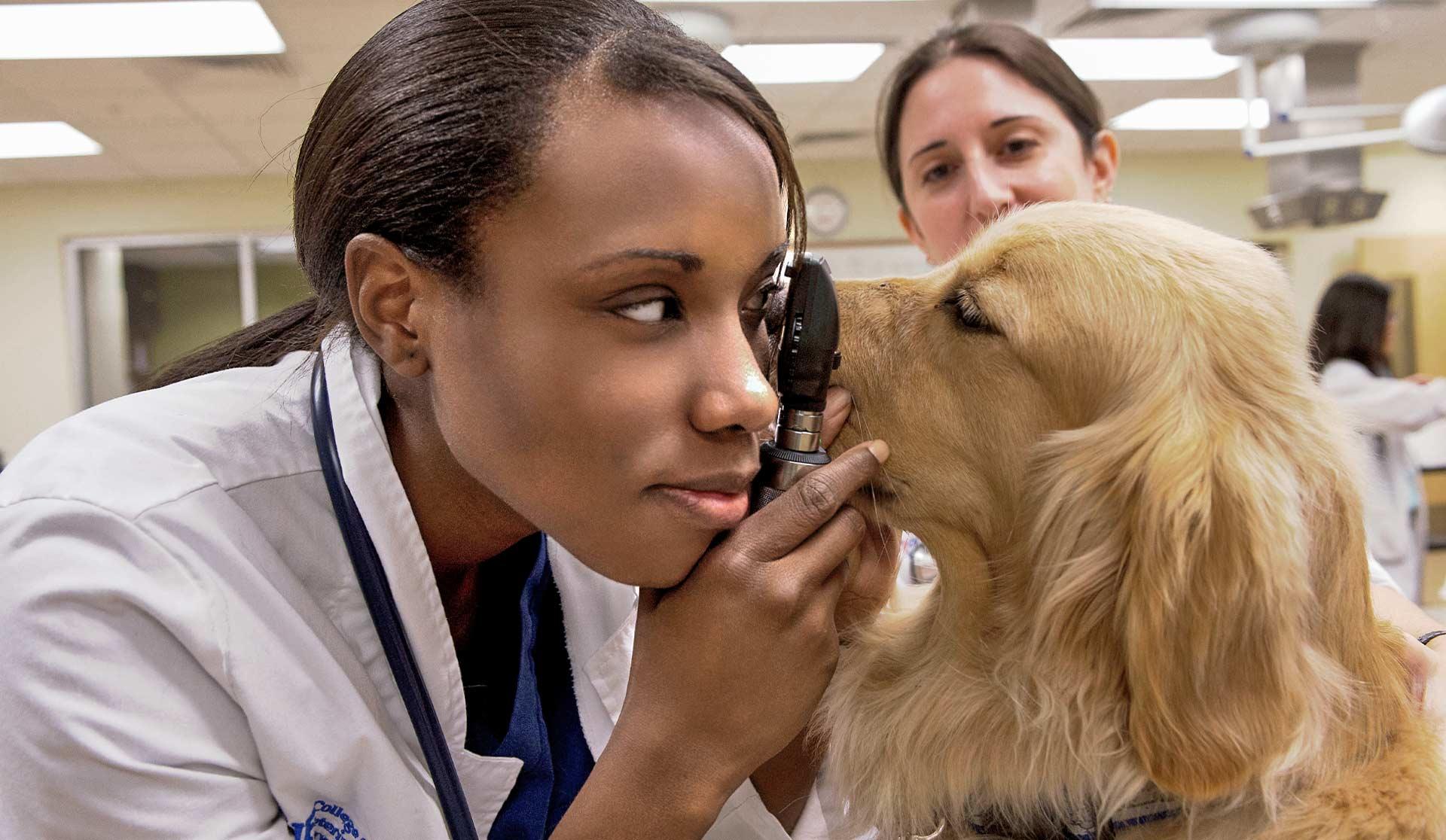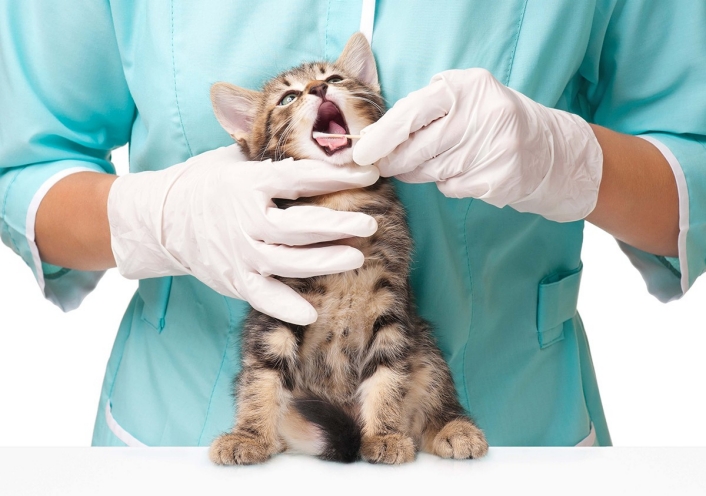Shield Your Pet's Future with Prompt Pet Vaccinations from an Expert Vet
Shield Your Pet's Future with Prompt Pet Vaccinations from an Expert Vet
Blog Article
Inoculation Standards From Your Relied On Veterinarian
Vaccination guidelines offered by your trusted vet play an important function in protecting your pet's wellness and wellness. Core vaccines are essential for all pets, while non-core injections can be customized to ecological direct exposures and details lifestyles. Understanding the subtleties of inoculation schedules, which start as early as six to 8 weeks, is important for optimal security. Furthermore, dealing with common misunderstandings bordering vaccinations can even more enhance family pet owners' self-confidence in these safety nets. As we explore these important elements, it becomes progressively clear why routine consultations with your vet are important for notified decision-making.

Relevance of Vaccinations
Vaccinations play a critical role in safeguarding pet dogs against a series of preventable conditions. By boosting the body immune system to acknowledge and fight particular pathogens, vaccines considerably reduce the occurrence of contagious illness that can affect an animal's health and longevity. Not only do inoculations secure individual pets, but they also add to herd immunity, thereby reducing the overall frequency of illness in the pet populace.
Prompt vaccinations aid to alleviate the spread of illness such as rabies, parvovirus, and distemper, which can have serious consequences for both pet dogs and people. Furthermore, inoculations are typically a requirement for boarding centers, brushing services, and pet dog parks, making them essential for those that desire to socialize their family pets.

Core Vaccinations for Pet Dogs
While the certain vaccination demands of animals can differ based upon private aspects, core vaccinations are generally recommended to safeguard against the most usual and severe illness (Vet Enterprise). Core vaccinations are those considered important for all pet dogs, no matter their lifestyle or geographical location, as they safeguard versus potentially fatal and very contagious diseases
For pet dogs, the core vaccines include those for canine distemper, parvovirus, adenovirus (liver disease), and rabies. Adenovirus can result in liver condition, while rabies is a zoonotic condition that presents a risk to both animals and people.
In pet cats, core vaccines include feline panleukopenia, feline calicivirus, feline herpesvirus (rhinotracheitis), and rabies. Feline panleukopenia is a highly transmittable viral disease that affects the immune system and intestines. Calicivirus and herpesvirus are major factors to top respiratory system infections in cats, while rabies remains a crucial worry for public wellness.
Seek advice from with your vet to guarantee your pets receive their core inoculations on time.
Non-Core Vaccines Explained
Non-core injections are customized to resolve details threats connected with a pet's direct exposure, way of living, and atmosphere to particular illness. Unlike core vaccinations, which are globally suggested for all animals, non-core vaccines are thought about based upon private circumstances. These vaccines are particularly important for animals that may experience distinct pathogens as a result of their geographical place, traveling routines, or activities.
Instances of non-core injections include those for Bordetella bronchiseptica, which is linked to kennel cough, and Lyme condition, triggered by ticks. Pets that frequently communicate with various other animals, such as those in boarding centers, pet dog parks, or brushing atmospheres, might take advantage of Bordetella vaccination. If you live in a location where Lyme illness is widespread, vaccinating versus this disease can be a prudent choice for outdoor-loving pet dogs.
Various other non-core injections may include those for leptospirosis, canine influenza, and feline leukemia, relying on the particular risk elements present. It is vital to have a comprehensive discussion with your vet about your pet's way of life and the possible demand for these injections, making certain a tailored vaccination technique that ideal safeguards your fuzzy buddy.
Inoculation Set Up Summary

As family pets mature, it is necessary to go to my blog abide by the suggested booster vaccinations. Veterinarian Enterprise. For adult pets, core vaccines are normally given every one to three years, relying on the certain vaccination and local policies. Non-core vaccinations may be suggested based on lifestyle elements and local condition prevalence, requiring a customized technique
Regular vet exams are crucial for upgrading inoculation schedules. Your veterinarian can give support on the most proper booster shots for your pet dog, considering age, health status, and environmental risks. By staying positive and educated, pet dog proprietors can guarantee their fuzzy buddies obtain prompt and reliable vaccinations, consequently safeguarding their health and well-being throughout their lives.
Usual Myths About Vaccines
False impressions concerning pet dog inoculations can bring about complication and unwillingness among pet owners regarding the booster shot procedure. One common misconception is that vaccinations are unneeded for indoor animals. While it holds true that interior family pets deal with lower threats, they are not completely immune to conditions, as microorganisms can be introduced via different ways, including human apparel and various other animals.
An additional misunderstanding is that vaccines can create the illness they aim to stop. Actually, the majority of injections contain suspended or undermined microorganisms, which can not create disease in healthy animals. Some pet proprietors also think that their pet dogs need to not be vaccinated if they are currently dig this healthy; nonetheless, vaccinations are a positive action that assists protect against the beginning of illness.
In addition, numerous pet dog owners fear that vaccinations will bring about long-lasting wellness problems. While negative effects can happen, they are short-term and typically moderate. The advantages of vaccination-- securing pets from potentially life-threatening illness-- much outweigh the dangers. Recognizing these common myths is critical for responsible pet possession and ensuring the health and wellness and security of your fuzzy companions. Always consult your veterinarian for precise info customized to your pet's particular requirements.
Verdict
In recap, adherence to inoculation guidelines is important for ensuring the wellness and longevity of family pets. Eliminating typical misconceptions bordering vaccinations additionally reinforces the navigate here importance of educated decision-making in animal treatment.
Not only do inoculations safeguard individual pets, but they additionally contribute to herd resistance, consequently decreasing the total occurrence of conditions in the animal populace.
Misunderstandings about animal inoculations can lead to confusion and hesitation among family pet proprietors concerning the booster shot process. While it's real that interior animals encounter lower dangers, they are not completely immune to illness, as virus can be presented through different means, including human apparel and various other animals.
Some pet proprietors likewise think that their pet dogs need to not be vaccinated if they are already healthy and balanced; nonetheless, vaccinations are a proactive measure that aids protect against the onset of disease.
The benefits of inoculation-- protecting animals from potentially serious illness-- much surpass the threats.
Report this page